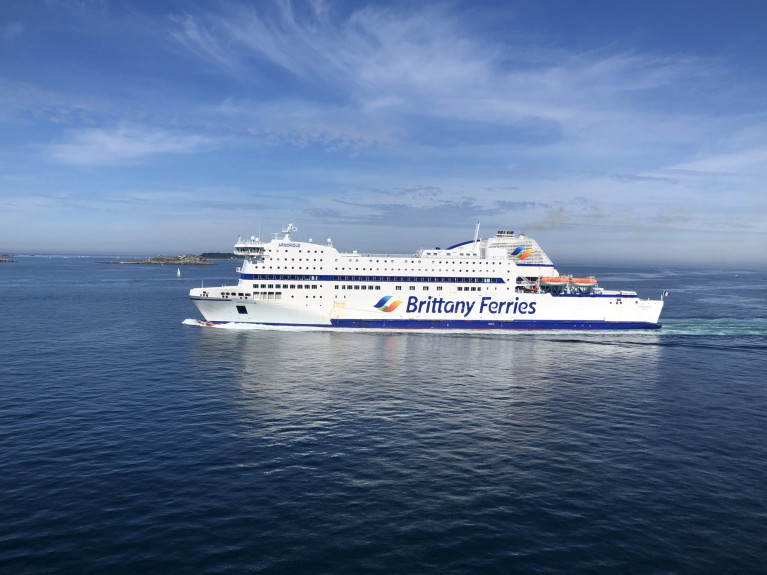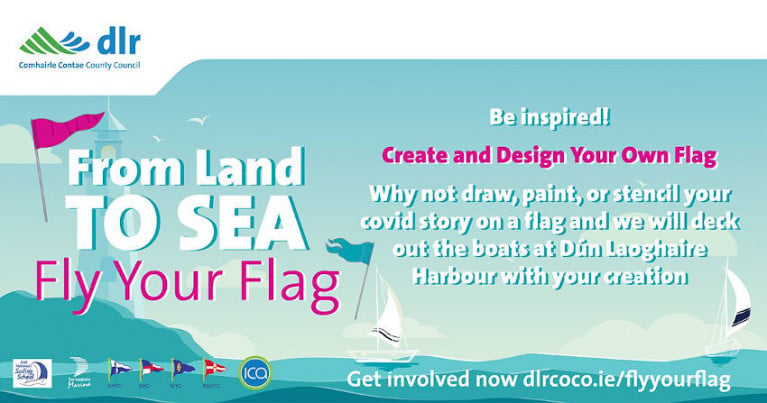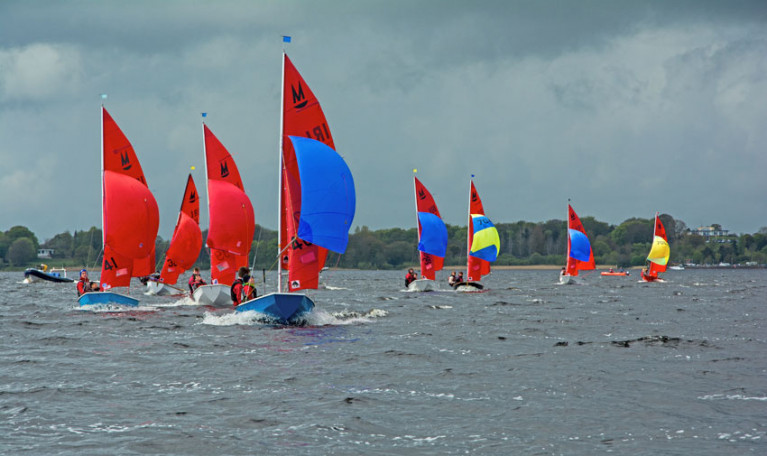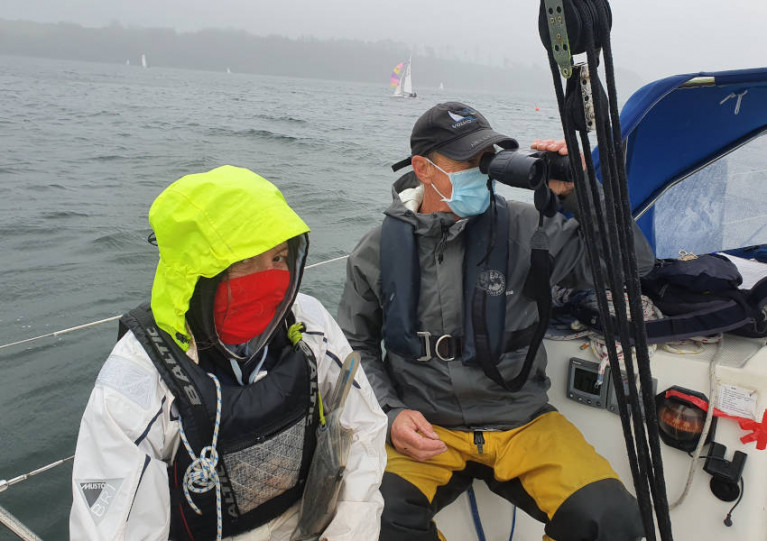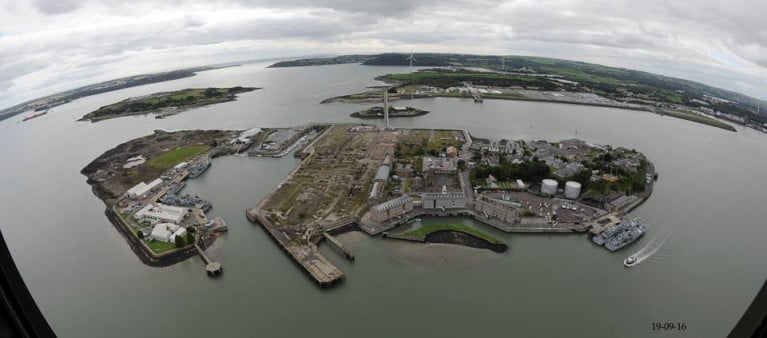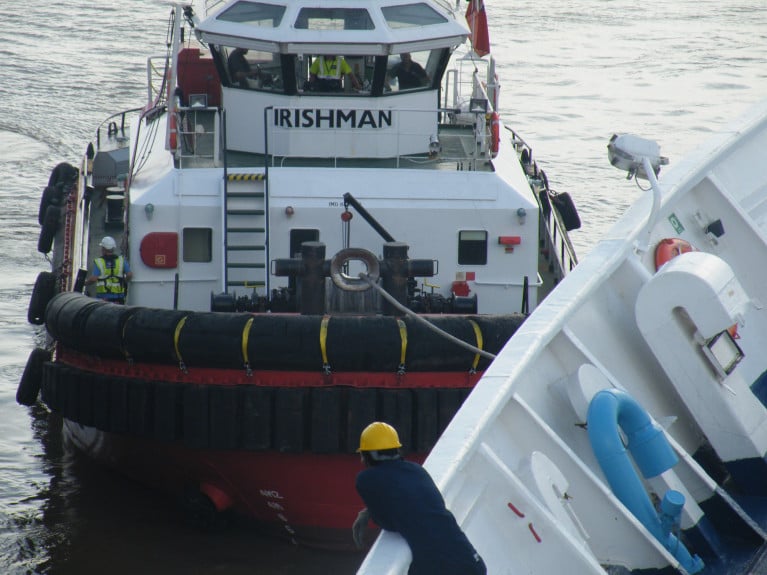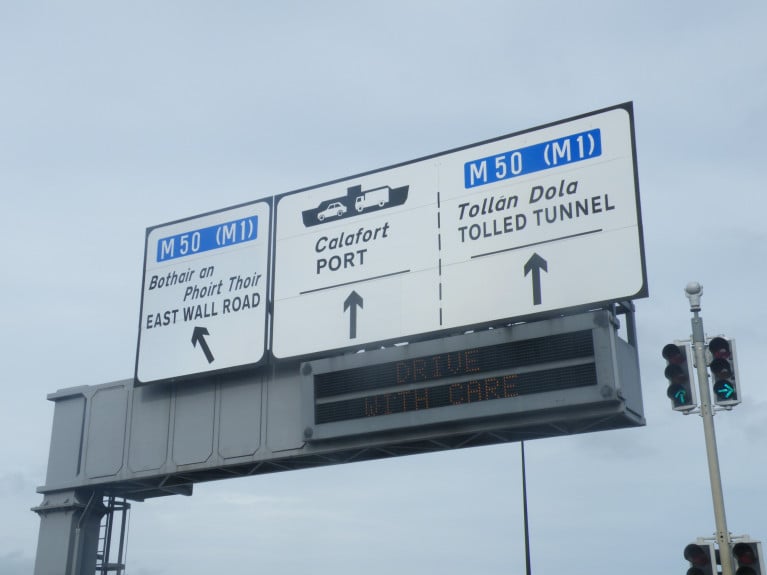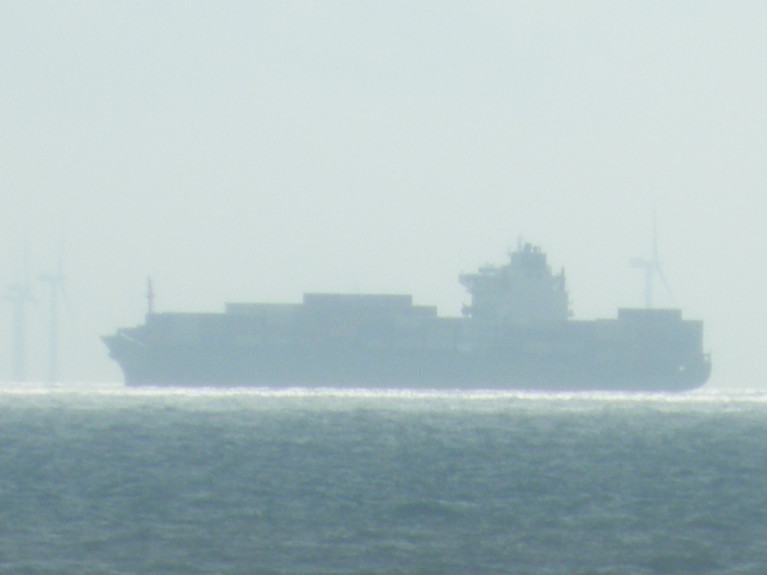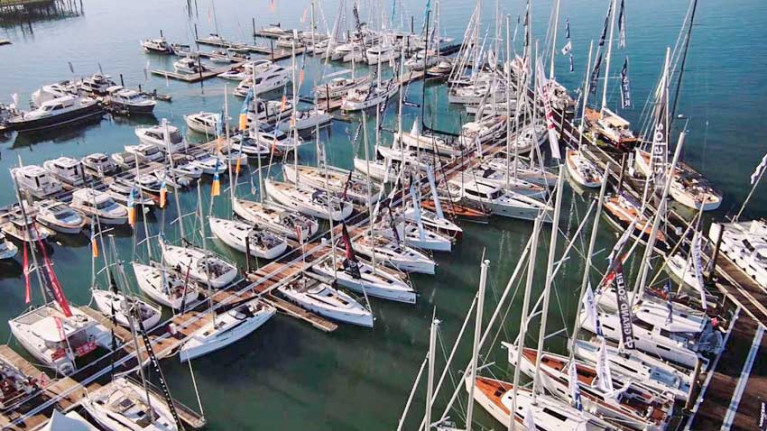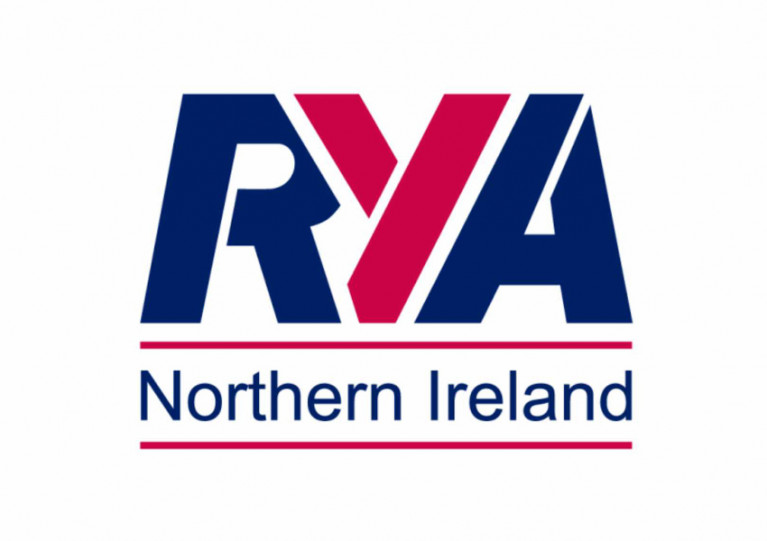Displaying items by tag: COVID19
Brittany Ferries Summer Sailings Operating Plus Second Cork-Roscoff Cruiseferry for Season '2021'
Brittany Ferries flagship began Cork-Roscoff seasonal service earlier this month following lifting of Covid-19 restrictions and notably another cruiseferry is to enter the popular Ireland-France route too but not until 2021, writes Jehan Ashmore
Asides the current routine Saturday afternoon departures from the Port of Cork by flagship cruiseferry Pont-Aven which arrives to the Breton port on the Sunday morning, Afloat has noted on the Brittany Ferries website that there will be the added choice next year to board another cruiseferry. This is to be the Armorique offering a Wednesday afternoon departure from Ireland with an arrival on Thursday morning at the Breton port in north-west France.
The development is apparently only referred once on the website in regards to the new Irish role for Armorique's Wednesday departures see within brackets (new for 2021).
Afloat also consulted the booking section which revealed Armorique's first outward sailing, Cork-Roscoff is scheduled for Wednesday, 24 March followed three days later with Pont-Aven departing on Saturday, 27 March 2021.
Armorique has actually previously called to the Port of Cork last year on foot of standing in for Pont-Aven which had hydraulic and beforehand engine-trouble with repairs both taking place at Damen Shiprepairs, Brest.
The introduction in next year's season of the Armorique will increase overnight ferry departures to twice a week on the Cork-Roscoff route. Luxury facilities of the cruiseferry are available for 1,500 passengers and accommodation comprises of 247 cabins and reserved seat lounges for 336 and space for 470 cars.
Also according to the ferry website, Afloat noted the Pont-Aven's sailing times (from Cork) take 14 hours however with next year's seasonal newcomer Armorique are timetabled for an 18 hour passage. As for sailing duration times (from Roscoff) both cruiseferries sailings are reduced. Two hours for those operated by the Pont-Aven and three hours served by Armorique.
Currently Armorique operates routine daily Roscoff-Plymouth sailings on the English Channel route which saw the custom Finnish (STX Europe) built cruiseferry enter service in 2009. The Armorique takes her name from an area of north west France meaning 'the country that faces the sea' and follows a predessor of the same name that launched the Cork-Roscoff route more than four decades ago in 1978. Pont-Aven also operates in tandem on the France-UK route, which was Brittany Ferries first route when launched in 1973.
This afternoon Pont-Aven is scheduled at 16.00hrs to depart Ringaskiddy Ferry Terminal in lower Cork Harbour on the overnight crossing of the Celtic Sea to Roscoff.
In addition Brittany Ferries which closed the Cork-Santander earlier this year and switched both Irish and Spanish ports to begin a new Rosslare-Bilbao route served by ropax Kerry and on an 'économie' service has resumed for passengers. As the Kerry had operated throughout the height of the Covid-19 restrictions by maintaining the Ireland-Spain link albeit in a freight-only mode.
The French operator had intended to launch a second new route out of Rosslare Europort, however Covid-19 also impacted the new Rosslare-Roscoff route which was due to open in March. This never materilised due to restrictions from governments and by the ferry company itself in the interests of crew.
Rosslare-Roscoff sailings finally launched late last month on 29 June (later than planned due to Covid-19). This route is also branded under the économie banner as the ropax Kerry has no-frills facilities compared to the luxurious Cork-Roscoff serving flagship cruiseferry.
The Ireland-France route along with Rosslare-Cherbourg in neighbouring Normandy was abandoned by Irish Ferries following the debut of W.B. Yeats operating instead out of Dublin Port but still retains the connection to the port located at the tip of the Contentin Peninsula in northern France.
Returning to Brittany Ferries which will continue operating both the seasonal Ireland-France routes until late October, whereas the Rosslare-Bilbao remains a year round service. Noting the Ireland-Spain overnight service subject to the sailing taken can involve up to 2 nights on board.
For Coronavirus updates, travel advice click here with important links.
More Time To Fly Your Flag At Dun Laoghaire Harbour
Dun Laoghaire’s local authority has extended the deadline to take part in its summer flag-making initiative.
As previously reported on Afloat.ie, locals of all ages are invited tell their own Covid-19 story with a flag of their own making.
Submitted flags will then be flown from the masts of boats among Dun Laoghaire’s sailing community which will display them in a flotilla on Dublin Bay.
Hundreds of flags have already been received by Dun Laoghaire-Rathdown County Council, but the authority said there are lots more stories to tell so they have pushed the deadline back to the end of summer.
For more details on how to take part and create your own flag, click HERE.
Mirror Northerns Move From This Weekend To End Of August
Mirror Sailing Ireland has announced new dates in August for the Northern regionals that were due to take place this weekend, 18-19 July.
Lough Ree Yacht Club will now host the Mirror Northerns on the weekend of 29-30 August as part of the Double Ree events.
Previously it was confirmed that the Mirror Westerns have moved to 3-4 October at Galway Bay Sailing Club.
Meanwhile, a date is still pending for the Mirror Southerns at Lough Derg Yacht Club as well as other events on the calendar disrupted by the coronavirus pandemic.
Guidance On Sailing Events During The Covid-19 Pandemic
A group of volunteer race officials have worked together to create a guidance document to help in planning and implementing safe and happy sailing events for the season ahead.
Irish Sailing has now published these guidelines, with details on planning, timelines, risk assessment and other considerations and controls for running both major national and smaller local events during the coronavirus pandemic.
This is an active working document and will be updated as Government guidelines changes throughout this pandemic. See the current full guidance document (as of 8 July 2020) attached below.
Associations Call for Compensation of Troops Who Quarantine
Two representative associations of the militiary are seeking financial compensation for troops who are forced to leave their families two weeks prematurely to go into compulsory Covid-19 quarantine prior to deploying on overseas missions.
Meanwhile, the Naval Service has confirmed that it's had to “deep clean” one of its ships after a sailor was confirmed as having the virus.
Both PDForra, which represents enlisted personnel, and RACO, which represents officers, have sought compensation for troops who are having to leave their families two weeks earlier than usual before UN deployment.
PDForra wrote to the Department of Defence saying it believes a special payment is “warranted given the analogous nature of quarantine.”
For more on what the association said click Irish Examiner here.
Seafarers' Rights - New International Commitment to Enhance 'Key Workers' Following Impact of Covid-19
Seafarers worldwide will get enhanced rights as key workers following a joint commitment made at the International Maritime Summit held in London last week.
- UK holds first international maritime summit to address impact of COVID-19 on crew changes
- international recognition for seafarers as key workers to enable free movement and quicker repatriation
- joint statement backed by International Maritime Labour Organization and other UN agencies
Representatives from over a dozen countries including Norway, Denmark, Indonesia, Saudi Arabia, United Arab Emirates, Greece, Philippines and the USA attended the summit. They agreed to new international measures to open up foreign borders for seafarers and increase the number of commercial flights to expedite repatriation efforts.
Despite the crucial role they play restrictions on international travel have left thousands of seafarers stranded at foreign ports with some confined to vessels for months despite having no contact with coronavirus.
The summit, hosted by Transport Secretary Grant Shapps and Maritime Minister Kelly Tolhurst, brought together members of the UN with political and business leaders from across the globe. The difficulties maritime crews face across the world was at the centre of the discussions, while all governments and parties were urged to resolve the issues with maritime transport to support workers and the industry more widely.
Kitack Lim, UN Secretary-General of the International Maritime Organization, also gave a special address.
Transport Secretary Grant Shapps said: “Throughout this pandemic, seafarers have played a crucial, though sometimes unseen, role in keeping vital supplies flowing into the country. It is unacceptable that there remain thousands of people stranded at ports around the world and we owe it to them and their families to change things.
“Today marks a new chapter for seafarers and alongside our international partners we are taking, a stand to end the bureaucracy preventing men and women around the world from returning home.”
Today’s agreement builds on the UK government’s longstanding work to bring home the British maritime workers waiting for repatriation and help seafarers in UK ports return home. The summit follows the successful repatriation of 12,000 seafarers from UK shores throughout the pandemic.
Maritime Minister Kelly Tolhurst said: "I am deeply concerned about how the global crisis has affected crew changes across maritime transport.
“I called today’s summit to turn the tide on the struggles seafarers have faced during this crisis and through today’s commitment we will speed up repatriation for crews globally.”
In conjunction with the Merchant Navy Welfare Board and Seafarers UK, the government has also announced a programme to support seafarers in UK shores with mobile internet routers – MiFi units – on board ships where hundreds of seafarers are still waiting to return home. This will give hundreds of seafarers free internet access on board.
Secretary-General of the International Maritime Organization Kitack Lim said: “It is time to act for seafarers. Safe ship operations and crew wellbeing should not be compromised. The humanitarian crisis seafarers face has implications for all of us, for the world economy and for the safety of life at sea and the environment.“
To ensure their swift repatriation, the Maritime Minister wrote to the International Maritime Organization (IMO), the International Labour Organization and the World Health Organization at the start of the outbreak on 23 March pressing that all states follow the UK’s work in repatriating workers regardless of their nationality or employment.
Secretary-General of the International Chamber of Shipping Guy Platten said: “Globally there are now over 200,000 seafarers who are stranded at sea and have overrun their contracts. These forgotten heroes of global trade work 12-hour days and 7-day weeks to make sure those of us on land have the food, medicine and fuel we need during this difficult time.
“This summit is a welcome show of political leadership at a time when seafarers across the world need it most. Governments must now use this summit as a catalyst to implement with the solutions the shipping industry has provided, applying the political will needed to put them into practice. This issue doesn’t require money and did not need complicated negotiations. This summit is a catalyst for action.”
The UK has remained open for seafarers to come and either stay on vessels, go ashore, take shore leave, or be repatriated, abiding by Public Health England requirements and social distancing.
(AFLOAT adds for those interested in towage, the Irishman featured previously in a report from the Port of Hull last year).
Irishman is currently berthed in Barry, south Wales having made a short passage from the Welsh capital, Cardiff (see: port story). The Japan built tug is operated by UK based SMS Towage with operations including Belfast Harbour.
Minister for Transport reports RTE News, has said a mandatory quarantine is not possible to enforce for those entering Ireland but stricter control measures are set to be introduced.
Eamon Ryan said those measures will include an electronic register and testing of some travellers.
Speaking on RTÉ's Today with Sarah McInerney, he said the advice remains that in the wider interests of public health it is best to stay in Ireland and not to travel abroad.
He said the Irish approach to Covid-19 is working and the quarantine measures in place are working, but authorities need to remain vigilant and continue to adapt, monitor and review the situation as more people start flying.
He said if the number of cases of Covid-19 rise as a result of international travel "we will have to tighten restrictions".
For more on this ongoing development click here.
As container lines have done relatively well financially during the Covid-19 pandemic, cargo owners have faced inflated transport costs and lower service quality, with many shippers reporting cargo roll-overs and carriers prioritising higher-paying spot cargo, according to container shipping consultancy and analyst Drewry.
The firm according to LloydsLoadingList, reports that container shipping lines are one of the few sectors that can be said to be having a good pandemic, but their positive financial performance risks them appearing to be profiteering from the crisis and may lead to carrier-shipper animosity. Drewry indicated that it did not believe lines have been profiteering but that they needed to do more to develop a better shipper-carrier dialogue in order to prevent possible animosity from building.
It noted that, “perversely, despite a sudden fall off in demand for their services, lines look set this year to make more money than they have in a long time as their crisis-management tactics – essentially blanking voyages – has paid off handsomely. In our latest Container Forecaster report, published at the end of June, Drewry estimates that the industry secured an operating profit (EBIT) of around $1.4 billion and margin of 3.2% in 1Q20, pretty much on par with the same quarter of last year.”
It said that while the first quarter was not a full test of the industry’s COVID-19 coping mechanism as most countries did not enter lockdown until quite late in the period, “all signs point to operating carriers having not only survived the market shock, but even benefitting from it, with spot market rates soaring and a number of previously guarded companies now upgrading quarterly and full-year guidance”.
But the same cannot be said of other stakeholders, Drewry said, highlighting that “cargo owners have had to contend with greatly inflated transportation costs, but lower service quality. Many shippers have been experiencing cargo roll-overs, including some contract BCOs that have told Drewry carriers are prioritising much higher-paying spot cargoes”.
For much more on the container shipping sector click here.
Southampton Boat Show Postponed To 2021
This year’s Southampton International Boat Show has been postponed to 2021 as the effects of the coronavirus pandemic continue to reverberate throughout the boating industry.
As International Boat Industry reports, the 52nd edition of the industry fixture — which had been scheduled for this September — has been pushed back a year, as current UK government guidelines suggest such large-scale events will not be permitted.
However, with Whitehall set to reveal a timetable for the holding of mass gatherings, British Marine hopes to hold an alternative, smaller-scale, outdoor event in lieu of this year’s Southampton boat show.
International Boat Industry has more on the story HERE.
RYA Northern Ireland has updated its guidance for boaters following recent announcements by the NI Executive.
Sport Northern Ireland officials confirmed that the sport sector remains in Step 2 of the Roadmap to Recovery until further announcements.
The situation in Northern Ireland is summarised as follows:
- Groups of up to 10 who do not share a household are permitted to take part in socially distanced outdoor activity. Recent announcements regarding increased group gathering sizes does not apply to outdoor activity, which remains at 10.
- Indoor facilities are to remain closed with the exception of restricted access to small shared facilities, eg storage area/toilet/through-ways. These are disinfected regularly with sanitation products available.
- Elite athletes are permitted to train indoors.
- Bars/restaurants in registered clubs will now be able to open alongside the hospitality sector. The NI Executive, at its meeting on 2 July, agreed to the restricted opening of restaurants and bars in private members’ clubs on 3 July. Guidance is available on the Tourism NI website. The Chief Scientific Adviser in Northern Ireland has also advised that a register of those present is kept on the premises. This will assist in contact tracing if necessary.
- Overnight stays onboard can take place with the easing of restrictions on second homes from 26 June.
- Social distancing remains at two metres unless you use mitigating measures, which could allow a reduction to a minimum of one metre. The NI Executive has reiterated that two metres remains the optimum. RYANI has updated Step 2 Guidance with this change and considerations for smaller craft.
RYANI chief operating officer Richard Honeyford said it “welcomes an outline timetable going forward that includes competitive sport potentially resuming from 17 July”.
He added: “This will have potential restrictions on numbers able to undertake activity at that time and facility access remains a key consideration on what may be delivered.”
The governing body for sailing in Northern Ireland has issued ongoing updates to clubs, training centres and engagement through its webinar forums.
Questions remain over more specific elements, however, and RYANI says it will continue to raise these with the Sports’ Expert Panel and working alongside the joint watersports group. This includes matters such as changing room access and guidance.
Full updated guidance and FAQs can be found on the RYANI’s Return to Boating webpage.


























